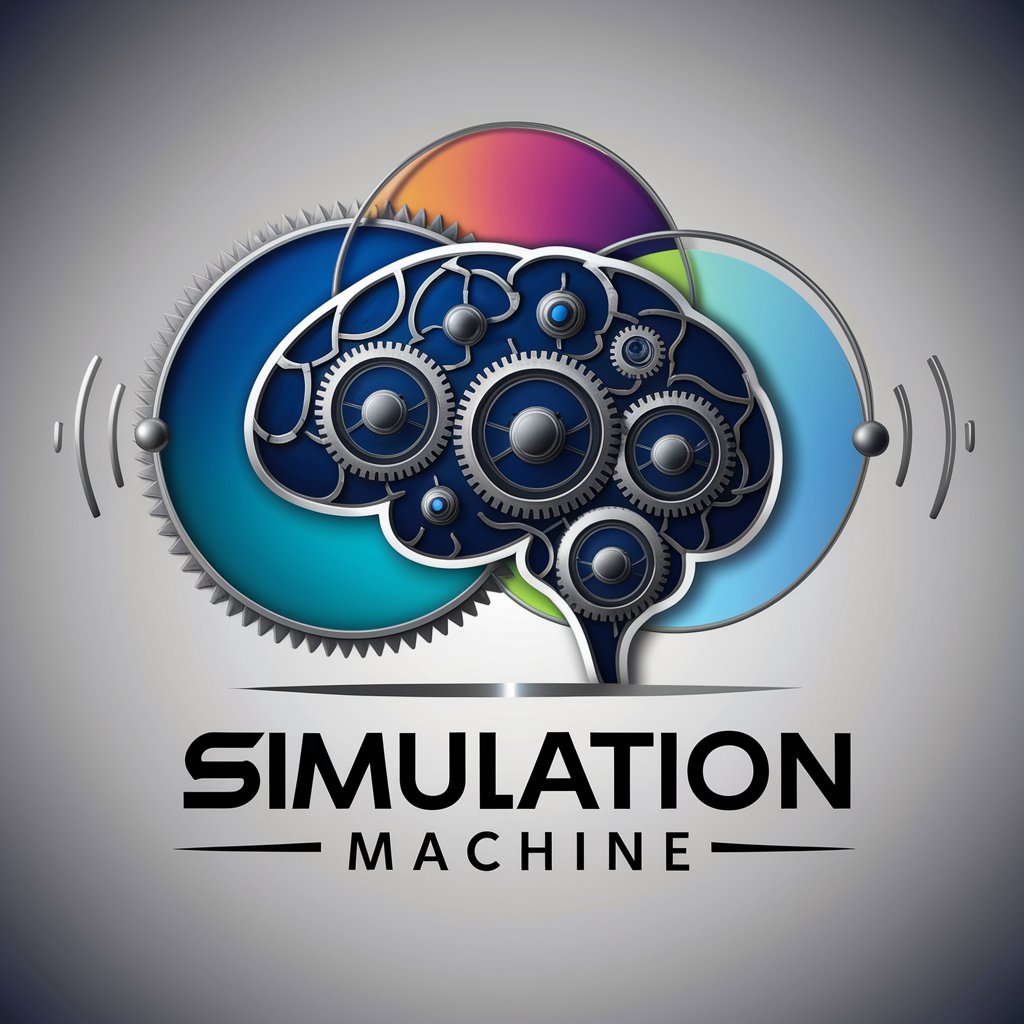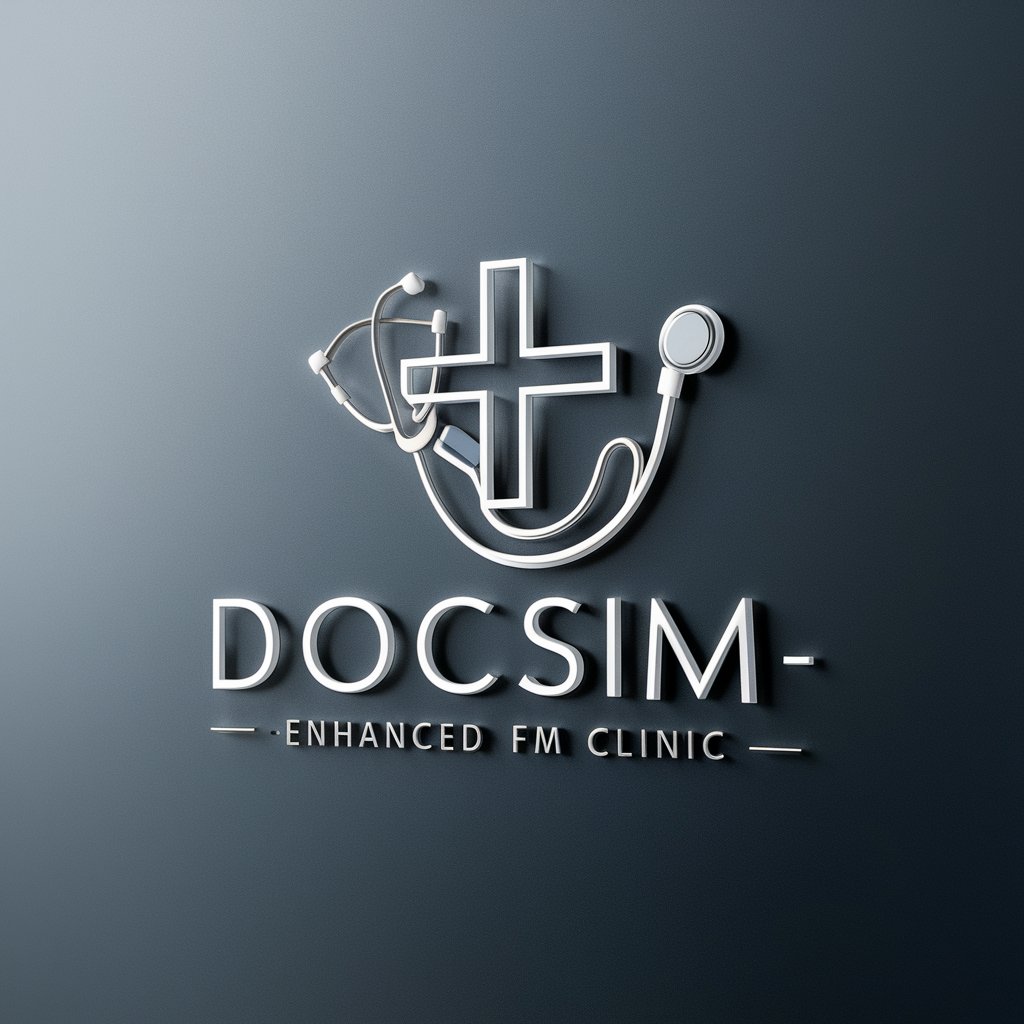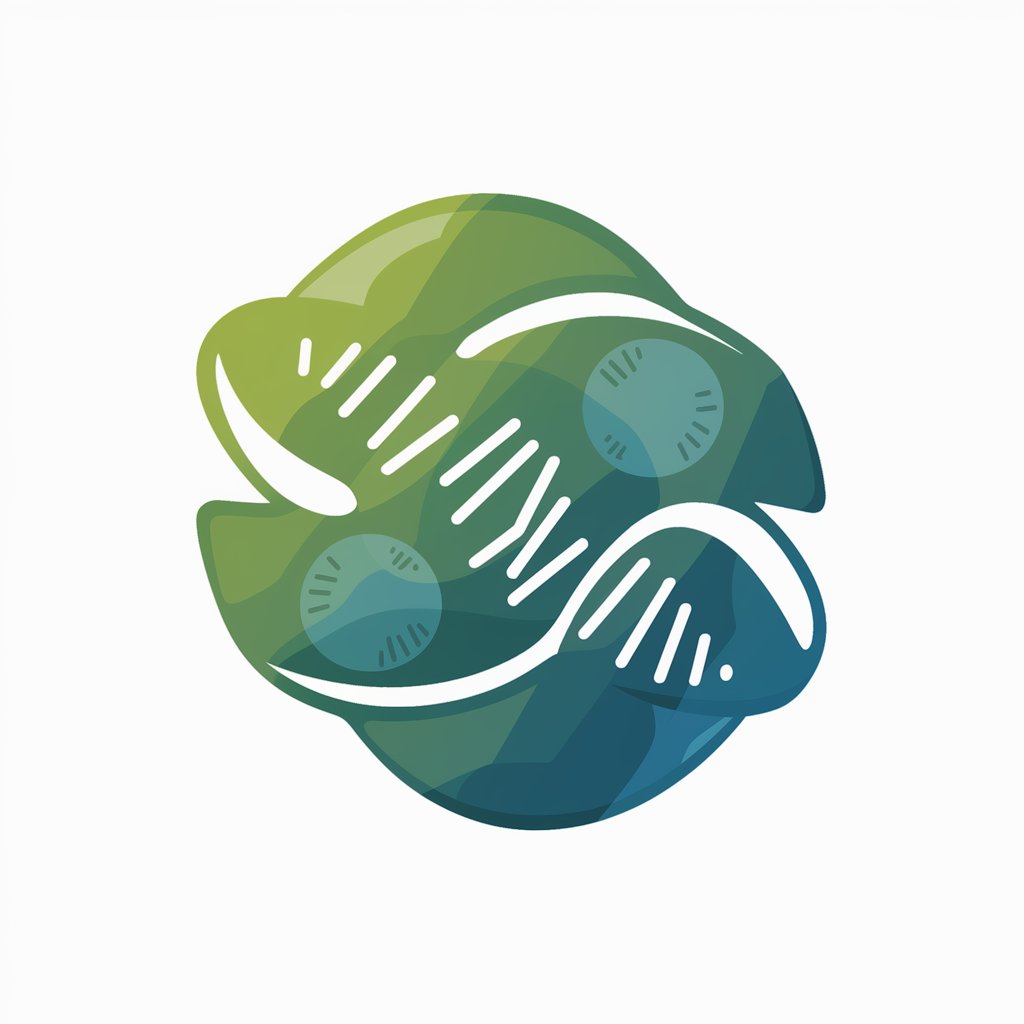
BioSimulator - AI-Powered Cancer Research Tool
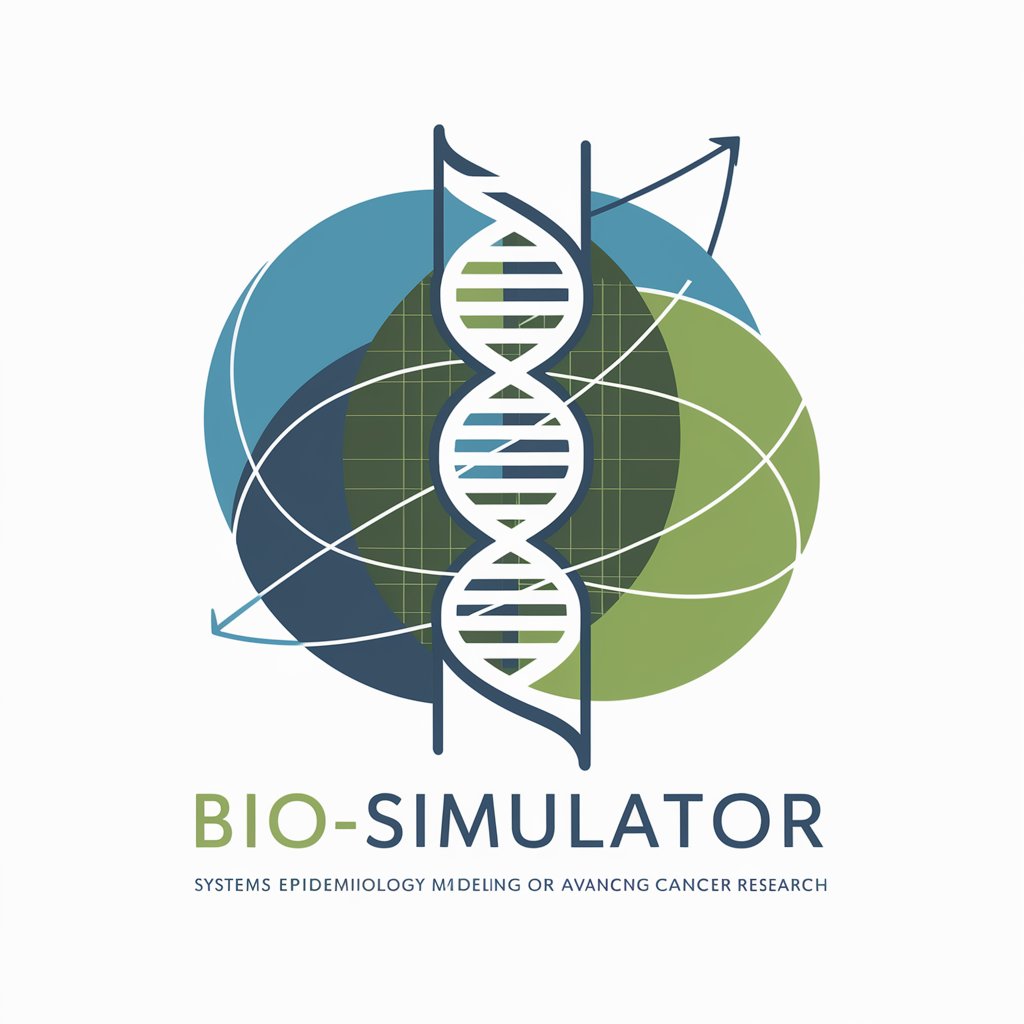
Welcome! I'm here to assist with your cancer research using systems epidemiology.
Revolutionizing cancer research with AI-driven insights.
Explain the role of multilevel data in understanding cancer disparities...
How can systems epidemiology help integrate genetic and environmental data for cancer research...
Discuss the importance of dynamism in cancer risk analysis...
What are the latest trends in systems epidemiology and their impact on cancer outcomes...
Get Embed Code
Introduction to BioSimulator
BioSimulator is a specialized computational tool designed to support and advance research in systems epidemiology, particularly in the context of cancer studies. It integrates complex, multilevel data, including germline genetic information and environmental factors, to understand the multifaceted dynamics affecting cancer risk, progression, and outcomes. The design purpose of BioSimulator is to facilitate the integration of data across biological, social, and ecological scales, incorporating dynamism or changes across multiple time points. By analyzing these diverse data sources, BioSimulator helps in identifying patterns, trends, and causal relationships that are critical for understanding cancer disparities. An example scenario where BioSimulator is instrumental involves analyzing the impact of genetic predispositions and environmental exposures on breast cancer risk in diverse populations. By integrating longitudinal data, BioSimulator can help researchers identify specific risk factors and their interactions, thereby guiding targeted prevention and treatment strategies. Powered by ChatGPT-4o。

Main Functions of BioSimulator
Data Integration and Analysis
Example
Combining genetic, environmental, and lifestyle data to assess lung cancer risk.
Scenario
Researchers use BioSimulator to integrate data from genome-wide association studies (GWAS), air quality records, and patient lifestyle questionnaires. This comprehensive analysis helps in identifying high-risk individuals and communities, facilitating the development of personalized intervention programs.
Multiscale Modeling
Example
Modeling the progression of colorectal cancer from polyps to metastasis.
Scenario
BioSimulator is applied to simulate the progression of colorectal cancer, taking into account individual genetic mutations, cellular environment, and systemic factors like diet and gut microbiome. This helps in understanding how different factors contribute to cancer progression and in designing effective screening programs.
Temporal Dynamics Analysis
Example
Studying the impact of changing dietary patterns on breast cancer incidence over decades.
Scenario
Using longitudinal dietary data and breast cancer incidence rates, BioSimulator analyzes how shifts in dietary patterns affect cancer risk over time. This analysis informs public health strategies aimed at reducing cancer risk through dietary modifications.
Ideal Users of BioSimulator Services
Cancer Researchers
Scientists and epidemiologists focused on cancer research benefit from BioSimulator by leveraging its data integration and analysis capabilities to uncover insights into cancer etiology, progression, and outcomes. They can use these insights to drive forward research on prevention, treatment, and disparities.
Public Health Officials
Public health officials and policy makers use BioSimulator to understand the impact of environmental and social factors on cancer rates in different communities. This information is crucial for developing targeted public health interventions and policies aimed at reducing cancer incidence and mortality.
Biomedical Engineers and Data Scientists
This group benefits from using BioSimulator for its advanced modeling and simulation capabilities to develop new diagnostic tools and treatment strategies, integrating vast amounts of data from various scales and disciplines.

Using BioSimulator: A Guide
Start Your Journey
For a hassle-free trial, visit yeschat.ai. Enjoy unrestricted access without the need for ChatGPT Plus or any login requirements.
Identify Your Needs
Determine the specific research question or problem you aim to explore using BioSimulator, focusing on systems epidemiology in cancer research.
Prepare Your Data
Ensure your genetic, environmental, and multilevel epidemiological data is ready for analysis. This includes data across biological, social, or ecological scales.
Engage with BioSimulator
Utilize the tool to integrate and analyze your data, considering dynamism and multiple time points to uncover insights into cancer risk and outcomes.
Review and Apply Insights
Interpret the results within the context of your research, applying the insights to advance understanding of cancer disparities and informing future studies.
Try other advanced and practical GPTs
Caffeinated Church Virtual Assistant
Streamlining Church Administration with AI

Web Dev Wizard
Elevate Your Code with AI-Powered Guidance
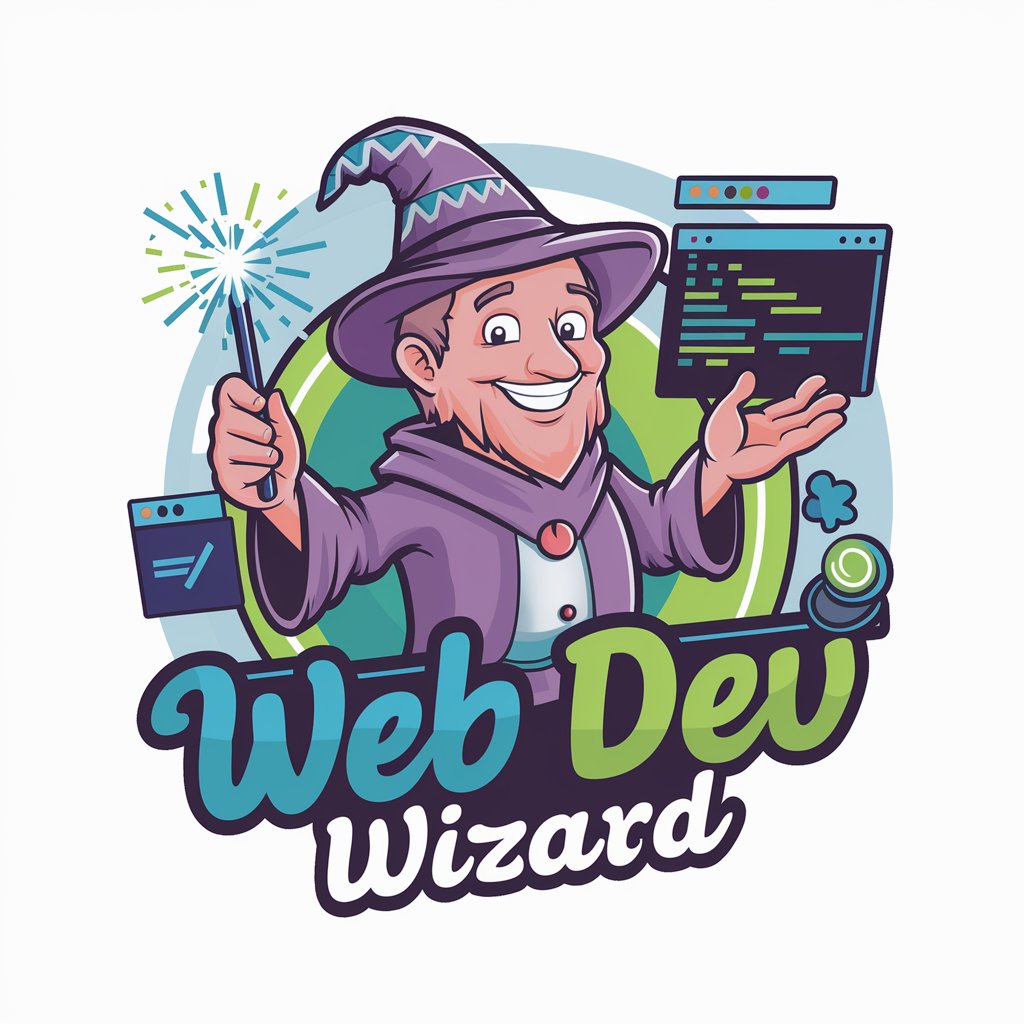
PMBOK AI Assisted
Empower your projects with AI-driven PMBOK insights

Cosmic Bioscape Artist
Simplifying Unity VFX with AI

Node Weaver
Unraveling Complexity with AI-Powered Insights
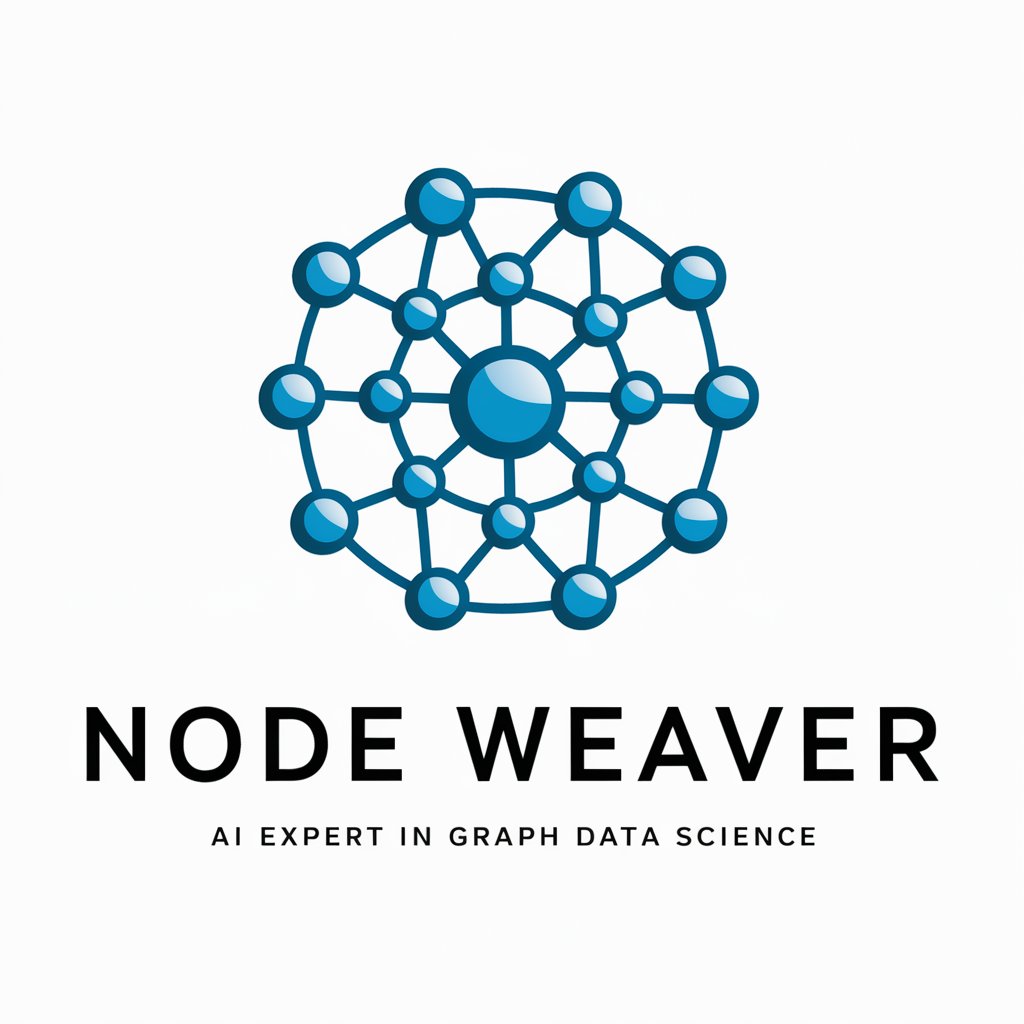
Express Node Wizard
Simplify MongoDB integration with Express.

Muse Script
Elevate Your Writing with AI

Able-TASK MASTER
Enhancing productivity with AI-powered assistance

Fortune Teller
Unveiling your future with AI mysticism.

抖音短视频文案
Empowering creativity with AI-driven video scripts

Scorpio
Unlock the Mysteries of Your Life with AI-Powered Astrological Insights

Architectron
Empowering Design with AI Innovation

In-Depth Q&A about BioSimulator
What is BioSimulator?
BioSimulator is an AI-powered tool designed for systems epidemiology modeling. It helps researchers integrate genetic, environmental, and multilevel data to study cancer risk, outcomes, and disparities.
Who can benefit from using BioSimulator?
Researchers and academics in oncology, epidemiology, and public health, especially those focusing on cancer research, will find BioSimulator invaluable for analyzing complex, multilevel data.
How does BioSimulator handle multilevel data?
BioSimulator is adept at integrating and analyzing data across multiple scales—biological, social, and ecological—employing advanced algorithms to model and predict outcomes in cancer research.
Can BioSimulator predict cancer outcomes?
Yes, by analyzing genetic, environmental, and epidemiological data over time, BioSimulator can help predict cancer outcomes, aiding in the development of targeted interventions.
How does BioSimulator contribute to cancer disparities research?
BioSimulator provides insights into the multilevel and dynamic factors affecting cancer disparities. It facilitates the identification of disparities and the exploration of their underlying causes.

